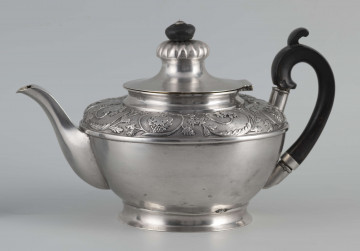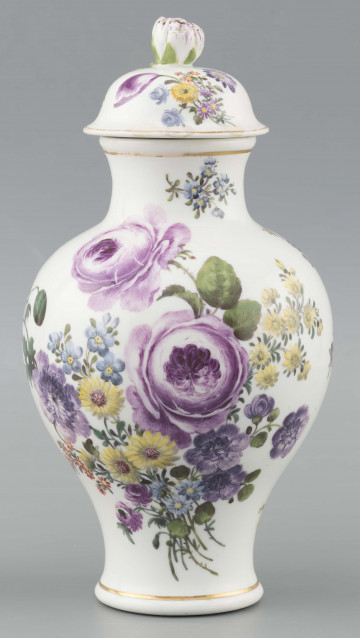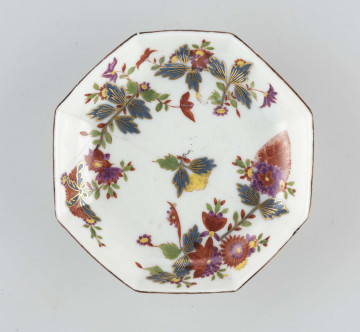
Teapot
1800 — 1844
National Museum in Lublin
Part of the collection: European porcelain
The name of the cup comes from the French language – trembler means to shake. The saucer is equipped with a gallery that makes it easier to hold a cup with a hot drink. The practical solution was intended to help those who were nervous, ill or in bed. The lid protected the drink from cooling down, and we must remember that in large houses and palaces, the distance from the kitchen to the bedroom or living room was considerable. This type of vessel appeared in the 18th century in France and quickly gained popularity, especially among ladies. It had something to do with a new fashion in elegant society – the custom of drinking hot chocolate at the start of the day before getting out of bed.
The beverage made from ground cocoa beans was known as far back as the ancient Maya. The first European to appreciate the value of cocoa beans was Christopher Columbus, but he did not like the drink. The Spanish began to modify the Mayan recipe: they poured boiling water over the cocoa powder instead of cold water, left out the chilli and honey and added cane sugar, vanilla, cinnamon, aniseed and even pepper. However, as we drink it today, chocolate was only popularised by the English after the first pump room for this 'fine West Indian drink' opened in London in 1657. Water was replaced by milk, and eggs whisked with sugar were added to obtain a thick, velvety consistency. A great chocolate lover was August II Saxon, who brought the fashion for drinking chocolate to Poland. He founded the first European porcelain factory, and the luxurious treat was served in porcelain dishes. In 1857, the Warsaw confectioner, Ernest Karol Wedel, created his recipe for the first Polish chocolate.
Barbara Czajkowska
Author / creator
Dimensions
cały obiekt: height: 12 cm, diameter: 10 cm
Object type
dish
Technique
overglaze paints
Material
porcelain
Creation time / dating
Creation / finding place
Owner
The National Museum in Lublin
Identification number
Location / status

1800 — 1844
National Museum in Lublin

1860 — 1780
National Museum in Lublin

1735 — 1745
National Museum in Lublin
DISCOVER this TOPIC
National Museum in Lublin
DISCOVER this PATH
Educational path